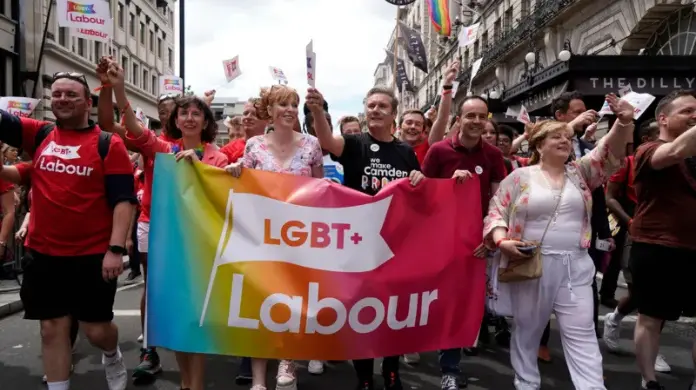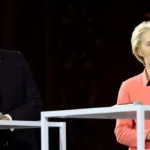
UK Pride Events Ban Political Parties Amid Trans Rights Dispute
In a major shift ahead of the 2025 summer Pride season, six of the UK’s largest Pride events — including those in London, Manchester, Brighton, Birmingham, and Glasgow — have suspended political party participation in response to growing concerns over the state of transgender rights. The move comes in the wake of a UK Supreme Court ruling clarifying that the legal definition of “woman” under the Equality Act refers exclusively to biological sex.
This landmark decision has triggered mixed reactions and renewed debate over the rights of transgender individuals across sectors such as politics, sports, and public services.
Read Also: Starmer Faces Backlash Over Immigration SpeechThis article is originally published on:
Pride Stands in “Unequivocal Solidarity” with the Trans Community
Political Access Revoked
Organisers from the largest UK Pride festivals announced that political parties would not be allowed to march or officially participate in this year’s events. In a joint statement, they cited a “refusal to platform those who have not protected our rights,” arguing that insufficient political action on trans issues warranted the unprecedented suspension.
The bans include restrictions on party-affiliated parade groups, stalls, and political speeches during Pride events. Politicians may still attend but only in a personal or community representative capacity.
A Response to Legal Developments
The decision follows last month’s Supreme Court ruling, which stated that the terms “woman” and “sex” in the Equality Act 2010 refer to biological sex rather than gender identity — even in cases where a Gender Recognition Certificate is held. The Equality and Human Rights Commission (EHRC) has since issued interim guidance to reflect this interpretation, with implications for access to single-sex spaces like bathrooms, sports, and changing rooms.
Pride organisers say this legal clarification reinforces the urgency to protect trans rights and combat what they described as a “disturbing global trend” of LGBTQ+ rights rollback.
Pride Groups Outline Demands to Restore Political Trust
Key Policy Requests
In place of political participation, the Pride organisations issued a call to action, demanding:
- Full and enforceable trans protections under the Equality Act
- Timely access to NHS gender-affirming healthcare
- Simplification of the Gender Recognition Certificate process
- Long-term funding for trans-led services and support groups
These demands are intended to serve as a benchmark for future political re-engagement with Pride events.
Frustration with Political Silence
Pride Glasgow, the latest to join the ban, explained that its decision was triggered by the “lack of action and delay of comment” from political parties following the Supreme Court ruling. The fallout from the legal clarification has already affected policy decisions across various sectors, including the Scottish Parliament and competitive women’s sports.
Mixed Reactions from Political Groups and Activists
The decision has not been universally welcomed. LGBT+ Liberal Democrats issued a strong statement expressing disappointment at what they called a “blanket suspension,” claiming it unfairly grouped all parties together regardless of their individual records on LGBTQ+ rights.
Meanwhile, gender-critical groups such as For Women Scotland and Scottish Lesbians welcomed the Supreme Court ruling, claiming it protects the integrity of single-sex spaces. Some lesbian campaigners have criticised Pride organisers for what they see as exclusionary tactics.
A New Chapter in UK LGBTQ+ Activism
The exclusion of political parties from some of the UK’s most prominent Pride events marks a significant departure from previous years, when high-profile figures such as Sir Keir Starmer, Nicola Sturgeon, and Boris Johnson marched under party banners.
Pride organisers now seek to refocus the movement on grassroots advocacy and trans inclusivity, placing clear pressure on political leaders to translate rhetoric into measurable action.
Closing Thoughts
As the UK navigates an increasingly polarised debate around gender and equality, the Pride movement is making a clear statement: solidarity with the trans community is non-negotiable. Whether this strategy leads to policy reform or further division remains to be seen — but for now, Pride is putting principle before politics.
This article is originally published on: bbc





